Benign Prostatic Hyperplasia is a non‑cancerous enlargement of the prostate gland that commonly occurs after age 50. It leads to urinary blockage, hormonal shifts, and sometimes compromises reproductive functions.
Benign Prostatic Hyperplasia can feel like an invisible roadblock for men trying to start a family, but the mechanisms are varied and often manageable.
Why the Prostate Matters for Fertility
Prostate is a small, walnut‑shaped gland that produces seminal fluid, contributing roughly 30% of semen volume and providing nutrients that protect sperm on their journey.
When the prostate enlarges, it can compress the urethra, change fluid composition, and alter the timing of ejaculation. These changes ripple through the whole reproductive cascade, from sperm motility to the ability to conceive.
Hormonal Ripple Effects
Testosterone is a primary male sex hormone that drives sperm production, libido, and muscle mass. BPH often coexists with lower‑than‑optimal testosterone levels, a condition sometimes called "andropause".
The enlarged prostate can increase the activity of the enzyme 5‑alpha‑reductase, converting testosterone into dihydrotestosterone (DHT). Elevated DHT shrinks the gland’s smooth muscle, worsening urinary symptoms, while the net drop in free testosterone can blunt spermatogenesis.
Physical Barriers to Semen Output
Semen Volume is a measure of the total fluid expelled during ejaculation. BPH‑related obstruction often reduces this volume, which can impede sperm transport and lower the chances of fertilisation.
Reduced volume also means fewer seminal fructose molecules, a key energy source for sperm. The end result is lower motility and higher DNA fragmentation - both red flags for infertility.
Sexual Function Meets Urinary Health
Erectile Dysfunction is a persistent inability to achieve or maintain an erection suitable for intercourse. While ED has many causes, the discomfort and anxiety linked to frequent nighttime urination often exacerbate the problem.
When a man is pre‑occupied with the urge to void, the psychological arousal pathway stalls, making it harder to reach orgasm and further reducing ejaculatory force.

Medication Choices and Their Fertility Footprint
Two main drug families treat BPH: alpha‑blockers and 5‑alpha‑reductase inhibitors. Both relieve urinary blockage, but they differ in how they touch sperm health.
| Attribute | Alpha‑Blocker | 5‑Alpha‑Reductase Inhibitor |
|---|---|---|
| Primary Mechanism | Relax smooth muscle in the prostate and bladder neck | Block conversion of testosterone to DHT, shrinking gland size |
| Onset of Relief | Hours to days | Months (6-12) |
| Impact on Semen Volume | Minimal | Potential reduction (10‑15%) |
| Effect on Sperm Quality | Rarely negative | Occasional decrease in motility |
| Typical Side‑Effects | Dizziness, low blood pressure | Decreased libido, breast tenderness |
Choosing the right therapy often hinges on a man’s family‑planning timeline. If conception is imminent, a short‑acting alpha‑blocker may be preferable because it leaves sperm parameters largely untouched.
When Surgery Enters the Picture
Procedures like transurethral resection of the prostate (TURP) or laser enucleation physically remove excess tissue. While they improve urine flow dramatically, they can also affect ejaculation. About 70% of men report retrograde ejaculation post‑TURP, meaning semen travels backward into the bladder instead of out the penis.
Retrograde ejaculation doesn’t always mean infertility - sperm can be retrieved from the bladder for assisted reproductive techniques, but it adds a layer of complexity to natural conception.
Practical Steps to Preserve Fertility
- Schedule a semen analysis before starting any BPH medication. Baseline data helps track changes.
- Discuss medication options with a urologist who understands your reproductive goals.
- Consider lifestyle tweaks: regular aerobic exercise, a diet rich in omega‑3 fatty acids, and limiting alcohol can lower prostate inflammation.
- If surgery is on the table, ask about sperm banking or intra‑uterine insemination (IUI) as backup plans.
- Monitor testosterone levels annually; supplemental therapy may be warranted under specialist supervision.
Related Concepts and Next Steps
Understanding BPH’s ripple effects opens doors to broader conversations about male reproductive health. Topics you may want to explore next include:
- Prostate cancer screening and its impact on fertility.
- Lower urinary tract symptoms (LUTS) and their relationship with sexual performance.
- Male hormone replacement therapy (HRT) and safe dosing protocols.
- Assisted reproductive technologies (ART) for men with retrograde ejaculation.
Each of these areas links back to the core entities discussed here, building a holistic view of how the prostate, hormones, and treatments interlock.

Frequently Asked Questions
Can Benign Prostatic Hyperplasia make a man completely infertile?
BPH rarely causes total infertility on its own. It usually reduces semen volume, alters sperm motility, and may provoke erectile dysfunction. With proper medical or surgical management, many men regain normal fertility parameters.
Do alpha‑blockers affect sperm count?
Alpha‑blockers primarily relax prostate smooth muscle. Studies show they have little to no impact on sperm count or motility, making them a go‑to choice for men planning conception.
What is retrograde ejaculation and how does it relate to BPH surgery?
Retrograde ejaculation occurs when semen flows backward into the bladder instead of out the penis, often after TURP or laser enucleation. It doesn’t destroy sperm, but it prevents natural delivery, so couples may need assisted reproductive methods.
Should I stop taking BPH medication if I’m trying to conceive?
Never stop medication without consulting a urologist. In many cases, doctors can switch you to a fertility‑friendly drug or adjust the dose to balance urinary relief with reproductive goals.
Is there a link between low testosterone and Benign Prostatic Hyperplasia?
Low circulating testosterone can coexist with BPH because the disease often elevates DHT locally, depleting free testosterone. Hormone testing is advisable, and targeted therapy may improve both urinary and reproductive outcomes.
Can lifestyle changes shrink an enlarged prostate?
While diet and exercise won’t reverse severe BPH, they can lessen inflammation, improve blood flow, and sometimes lower PSA levels. Studies highlight the benefit of a Mediterranean‑style diet and regular pelvic floor exercises.
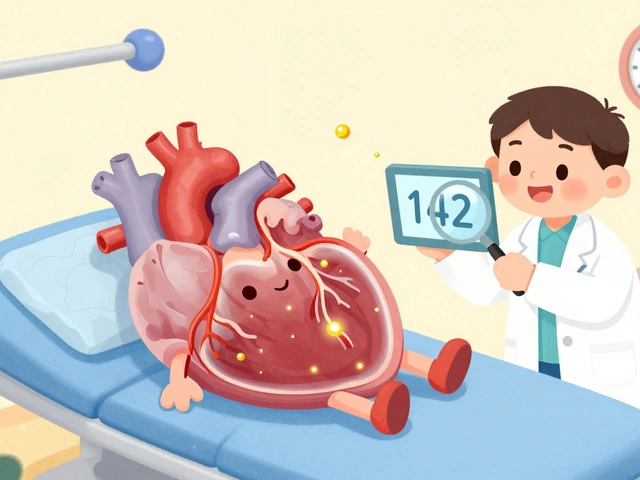
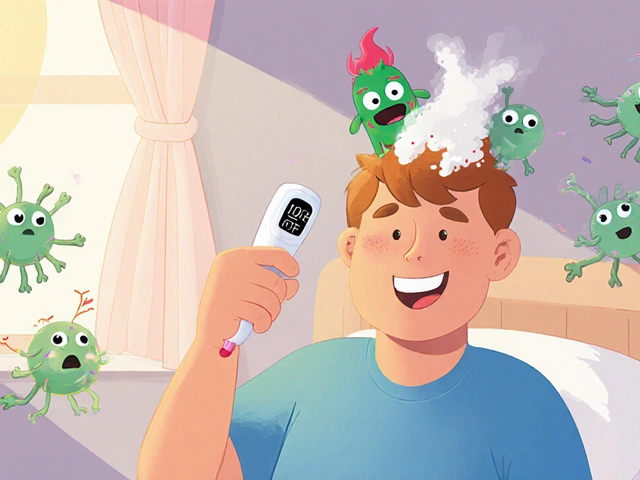
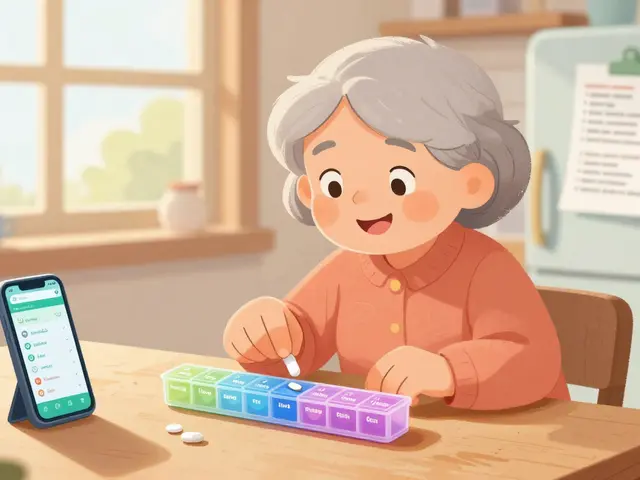
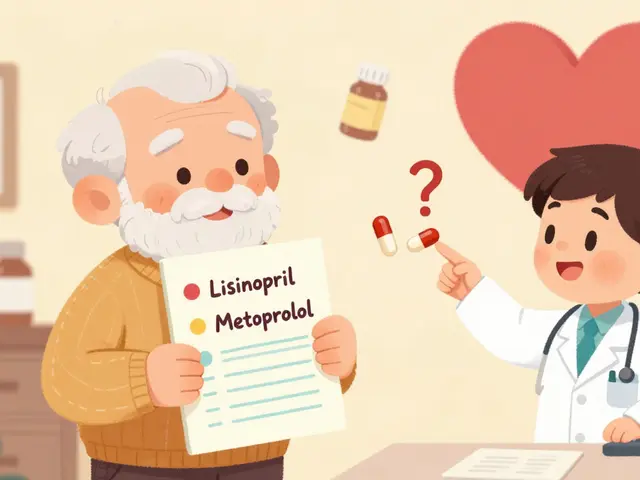
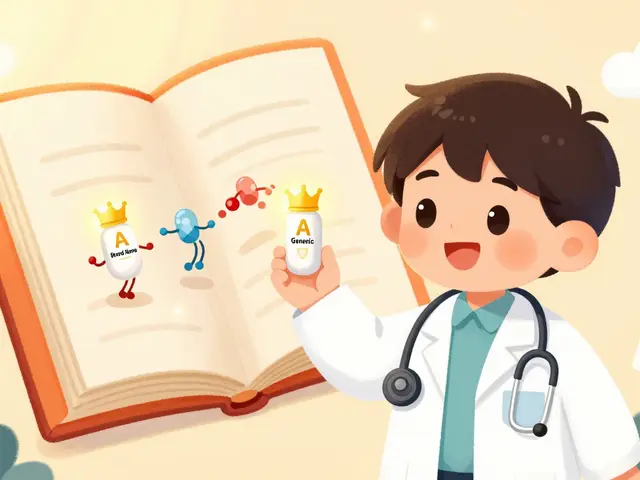

13 Comments
Look I get it, the prostate is some mystical gland that makes magic juice but honestly this post reads like a urology textbook that got lost in a TED Talk. Nobody cares about DHT ratios unless you're trying to sell supplements. Just say if it messes with your dick or not.
I’ve been living with BPH for over a decade now, and while the medical jargon here is accurate, what’s missing is the quiet, daily grief of it-the midnight bathroom trips that turn into full-blown existential crises, the way you start avoiding sex not because you don’t want to, but because you’re terrified you’ll end up with semen in your bladder instead of your partner’s body. It’s not just physiology, it’s a whole emotional recalibration. I wish more people talked about that part.
ALPHA-BLOCKERS ARE A GOVERNMENT COVER-UP. THEY’RE DESIGNED TO MAKE MEN WEAK AND DEPENDENT. THE REAL CAUSE OF BPH? 5G RADIATION + FLUORIDATED WATER + BIG PHARMA’S SECRET AGENT DHT. THEY WANT YOU TO THINK IT’S JUST ‘AGING’ SO YOU’LL TAKE PILLS FOREVER AND NEVER ASK WHY YOUR SPERM COUNT DROPPED AFTER YOU TOOK FINASTERIDE. THE PROSTATE ISN’T ENLARGING-IT’S FIGHTING BACK.
While the article presents a clinically sound overview of benign prostatic hyperplasia and its implications for reproductive health, one must acknowledge the significant methodological limitations in extrapolating semen parameters from population-level data to individual fertility outcomes. The correlation between reduced seminal volume and impaired fertilization potential remains statistically tenuous without controlled longitudinal studies accounting for confounding variables such as age, comorbidities, and sexual frequency.
wait so if you have bph and take meds… does that mean your sperm is still good but just… not coming out right? like… is it still alive in the bladder? i’m so confused now
OMG I JUST REALIZED MY HUSBAND HAS BEEN TAKING FINASTERIDE AND I THOUGHT HE WAS JUST ‘STRESSED’ 😭 I’VE BEEN TRYING TO GET PREGNANT FOR 2 YEARS AND HE’S BEEN SHRINKING HIS PROSTATE AND I DIDN’T EVEN KNOW IT COULD KILL OUR CHANCES 😭😭😭 THIS IS A TRAGEDY. WE NEED A CAMPAIGN. A MOVEMENT. A TIKTOK. #BPHBETRAYAL
It’s fascinating how the body’s systems are so deeply interconnected-this prostate isn’t just a plumbing issue, it’s a hormonal symphony, a reproductive orchestra. I never thought about how the same enzyme that causes urinary symptoms might also be quietly dimming the spark of fertility. It makes me wonder how many other silent trade-offs our bodies make between comfort and conception. Maybe we’re all walking around with invisible compromises, and we just don’t know it until we try to build a family.
Hey so I got BPH last year and I’m trying to get my wife pregnant-can I still have sex after I take tamsulosin? Like, does it make you sleepy or something? I don’t wanna pass out mid-romance 😅
MY MAN JUST GOT TURP AND NOW WE’RE DOING IUI 😍 I KNOW IT’S NOT ‘NATURAL’ BUT WE’RE STILL MAKING BABIES AND THAT’S WHAT MATTERS 💕🩵 #BPHTOBABYJOURNEY #RETRGRADEISNOTTHEEND
AMERICA IS LOSING ITS MANHOOD. FIRST WE LET WOMEN TELL US HOW TO FEEL, NOW WE’RE TAKING PILLS THAT TURN OUR SPERM INTO BLADDER SLUDGE. THIS ISN’T MEDICINE-IT’S CULTURAL SURRENDER. IF YOU’RE TRYING TO HAVE KIDS, STOP TAKING ANYTHING THAT’S NOT A STEAK AND A DEADLIFT. GOD MADE THE PROSTATE. DON’T LET A DOCTOR UNMAKE IT.
You got this, bro 💪 BPH is just your body’s way of saying ‘slow down, live better, think long-term.’ I was right where you are-nervous, overwhelmed, scared my marriage was over. But I started walking 30 mins a day, cut out soda, did pelvic floor exercises, and talked to my doc about switching meds. Now my wife’s pregnant and I feel like a superhero. It’s not easy, but it’s worth it. You’re not alone 🙌❤️
Just wanted to say thank you for this. My dad had BPH and never talked about it. I’m 32 and already worried about my future. This post didn’t just give me facts-it gave me a roadmap. I’m going to get a semen analysis next month and ask about alpha-blockers. I didn’t know I could ask that. You made me feel less alone.
The clinical implications of retrograde ejaculation following transurethral resection of the prostate are well-documented in urological literature. However, the psychological impact on couples attempting conception remains under-researched. While sperm retrieval techniques offer viable alternatives, the emotional burden of medicalized conception may contribute to relationship strain, particularly in cultures where natural conception is culturally idealized. Further qualitative studies are warranted.